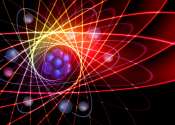Cloud data storage security approach taps quantum physics
Distributed cloud storage is a hot topic for security researchers around the globe pursuing secure data storage, and a team in China is now merging quantum physics with mature cryptography and storage techniques to achieve ...
Nov 14, 2023
0
35








